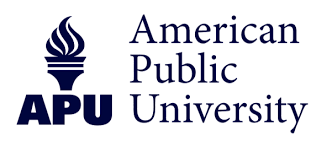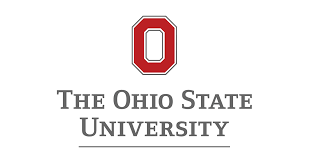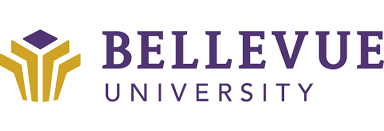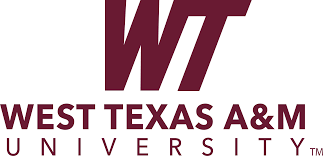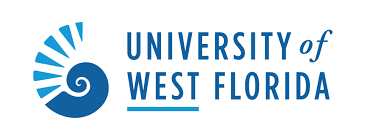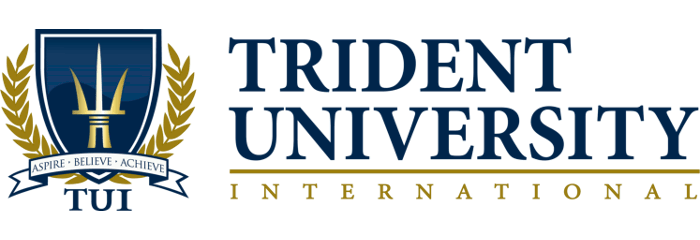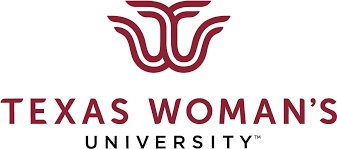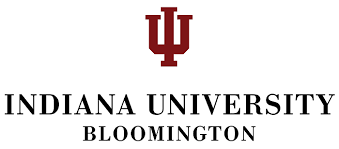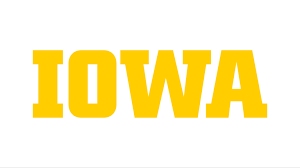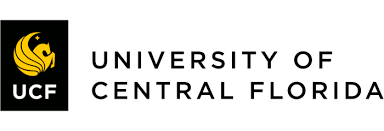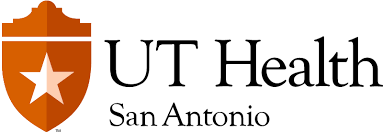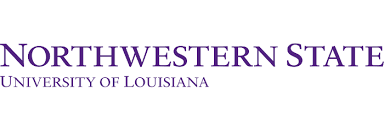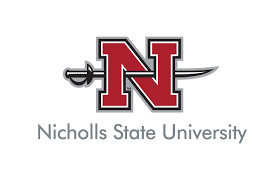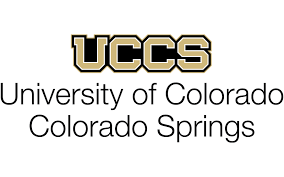Is earning a health science degree a stepping stone to a professional degree? Or is it your end goal? Either way, it’s key to a stable and satisfying career.
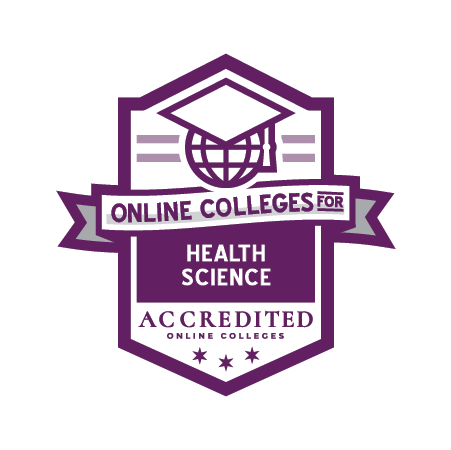
If you’re unsure why one of our top-ranked 30 accredited healthcare schools may be right for you, then listen up: we’ll explain the ideal candidate for this scientific area of study.
Health science is a large category. It includes aspects of both health and science. This degree is a natural fit if you plan to work in a health field or science-related field.
Of course, you want a degree from one of the many independent agency recognized accredited programs. Better still, why not one of the top accredited programs, like those in our ranking?!
See Also: 30 Accredited Online Colleges for Respiratory Therapy
What Will You Learn With a Health Science Degree?
As noted earlier, the health science field includes a broad range of topics:
- public health
- health administration
- health information management education
- surgical technology
Some health education schools may have classes not found in other universities. Although some of the class names may change, there are some common features in classes across health science programs.
A health science degree prepares you for various careers. This includes jobs in clinical and non-clinical settings.
For example, you might use a degree like this to become a medical assistant or dental hygienist. You could also start a job as a surgical technician or respiratory therapist. You can get a degree in one of these fields from accredited online medical programs.
See Also: 25 Accredited Online Colleges for Radiation Therapy
What Kinds of Classes Will You Take?
Health science degree programs require you to take an anatomy and physiology class. You might have to take a biology class before completing the degree. These two classes are the basis of the health profession.
Additionally, in accredited programs like those listed below, you’ll take classes in chemistry and research. These courses fulfill the scientific part of health science.
Specific health education schools on this list may allow you to concentrate in a specific area of health science. For example, you might specialize in:
- public health
- the aging population
- healthcare management education
If the school allows you to specialize, you’ll take various classes related to the specialty you choose. In addition, you’ll take the health science core composed of the classes listed above.
See Also: Top 30 Accredited Online Colleges in Health Informatics
What Are the Best Accredited Online Colleges in Health Science Degrees?
Accredited Online College uses the most recent data from the Department of Education’s National Center for Education Statistics. We use this data to rank the health education schools below.
Each of the accredited programs in our ranking is scored individually. It’s then compared to all other universities offering that same degree. This allows us to determine the final score you see by each ranking.
Accredited Online College considers the affordability, student-to-faculty ratio, and number of on-campus and online programs. Of course, all of the institutions on this list are accredited schools.
See our methodology page for more information about allied health education programs, other accredited programs, and how we rank them.
1. American Public University
American Public University offers a health science program with features that include:
- affordable tuition
- a high-quality education
- a waived fee for transfer credits from another university
It’s among the best accredited programs in this field, too.
APU’s online Bachelor of Applied Science in Health Sciences degree is 120 credit hours. Ninety credits can be transferred from another school.
Classes start monthly. You won’t have to wait for the first step in earning your APU degree.
You will start new classes every eight to 16 weeks. The timeline depends on the class. Throughout the program, you’ll take many science-related classes such as:
- General Biology
- General Chemistry
- Exercise Physiology
- Sports First Aid
Additionally, you might take classes related to:
- healthcare management education
- public health
- health administration
- health informatics
Another benefit of this program is that class materials are available online. This includes your textbooks. This means you’ll save a little extra money each semester.
The accrediting bureau for this school is the Higher Learning Commission.
Learn more about Accredited Online Healthcare Management Education Programs at American Public University here.
2. Arizona State University
Have you already done an Associate of Applied Science degree? Are you ready to take the next step in education by earning your bachelor’s degree? Then Arizona State University’s Online Bachelor of Applied Science in Health Sciences may be right for you.
You can have previous education in many areas. For example, if you have training in medical radiology, nuclear medicine, or another applied science discipline, this degree is for you. It will get you ready to take on more responsibility in your organization.
This 120-credit-hour degree teaches you many health-related topics. This gives you a broad range of knowledge and developed problem-solving abilities.
In this program, you can expect to take classes such as:
- Historical and Contemporary Issues in Health
- Population Health Management
- Complementary Health Care
You might also take courses in:
- public health
- health policy
- healthcare management education
- surgical technology
In all, you’ll take 19 classes to earn this bachelor’s degree.
Learn more about Accredited Online Programs For Health Science at Arizona State University here.
3. University of South Dakota
The University of South Dakota is among the best online schools for health sciences. You have the choice of specializing your studies with this Bachelor’s in Health Sciences program.
You can choose from six pathways. Options include:
- Pre-Professional Studies
- Health Care Studies
- Undergraduate Public Health
- Undergraduate Research
The Pre-Professional pathway is ideal if you want to continue in a graduate degree, like one of the accredited online medical degree programs available today. The Health Care Studies pathway may be ideal if you want to earn a bachelor’s degree and begin your career.
If you want to pursue a career in public health or epidemiology, the Undergraduate Public Health pathway is a good choice. Future scientists are best suited to the Undergraduate Research pathway.
The classes you take depend on the specialization. However, you might take classes on topics related to:
- Healthcare management education
- Public health programs
- Health administration
- Health informatics
- Allied health
- Health policy
There are many other course options available at this and other accredited institutions.
The Higher Learning Commission accredits the University of South Dakota.
Learn more about Accredited Online Allied Health Education Programs at University of South Dakota here.
4. Rutgers University- New Brunswick
Do you already work in the healthcare field? Do you want to move up the ladder? Then Rutgers University-New Brunswick’s Bachelor of Science in Health Sciences degree-completion program might be for you!
Rutgers is one of the top colleges for health science. There are three tracks to choose from:
- Aging
- Health Care Management
- Psychiatric Rehabilitation
Each track is for students with a particular associate’s degree.
For instance, the Psychiatric Rehabilitation track is best for you if you have experience working as a psychiatric technician.
All three tracks are mostly in 15-week modules. A select few are eight-week modules. Online students can work toward a degree either full-time or part-time.
Classes you might take in this program include:
- public health
- health administration
- allied health
- health education
- health management
Learn more about Accredited Online Healthcare Management Education Programs at Rutgers University – New Brunswick here.
5. University of Cincinnati
Are you an occupational therapy assistant? Do you want to finish your bachelor’s degree? If so, check out the University of Cincinnati’s Bachelor of Science in Health Sciences – Pre-Occupational Therapy program.
This program is only 52 credit hours. It results in a Master’s in Occupational Therapy. With this degree, you can become a licensed occupational therapist. You can also minor in psychology.
The Pre-Occupational Therapy coursework focuses on subjects that practicing occupational therapists need, such as:
- anatomy
- pharmacology
- nutrition
- biomechanics
You might also take education programs such as:
- Foundations of Quantitative Reasoning
- Psychobiology
- Health Care Ethics
This degree program does not lead to licensure as an occupational therapy assistant. Applicants should already be licensed.
The University of Cincinnati is a top choice among the accredited institutions on this list. This is especially true if you want to complete a pre-occupational therapy program.
Learn more about Accredited Online Programs For Health Science at University of Cincinnati here.
6. The Ohio State University
The Bachelor of Science in Health Sciences from The Ohio State University helps you build a solid science and healthcare foundation.
Like degrees from the other health education schools on this list, this degree prepares you for graduate school. It also prepares you for professional healthcare careers.
With this degree, you might focus on any of the following for later studies:
- occupational therapy
- dentistry
- physical therapy
OSU sets you up for success by allowing you to take a course demonstration. This shows you what learning online is all about.
If accepted into this bachelor’s degree program, you can take classes such as:
- Individual Differences in Patient/Client Populations
- Application of Ethical Decision Making in Health Care
- Health Promotion and Disease Prevention
Other topics you might study include:
- Healthcare management education
- Health administration
- Public health
- Allied health
- Surgical technology
You’ll be taught by professors with various personal and professional experience.
OSU has higher education accreditation from the Higher Learning Commission.
Learn more about Accredited Online Allied Health Education Programs at The Ohio State University here.
7. University of Missouri
Do you want to go to graduate school? Are you ready for a non-clinical health program? The University of Missouri’s online Bachelor of Health Science program is for you!
This degree is best for careers in:
- health education
- healthcare sales
- healthcare IT
- other non-clinical jobs
This bachelor’s degree is 120 credit hours. You’re able to transfer up to 64 hours of college credit.
The courses in this program are either semester-based or self-paced. The core curriculum covers topics such as:
- clinical ethics
- health professions
- healthcare in the United States
- public health principles and practice
- hands-on experiential learning
Elective courses might include:
- health education
- allied health
- public health
This degree is reasonably priced. If you have no previous college credit, the full online program costs $45,561.
Learn more about Accredited Online Healthcare Management Education Programs at the University of Missouri here.
8. Wilmington University
The Bachelor of Science in Health Sciences from Wilmington University has emphasizes foundational topics. You’ll have the guidance of health science experts in this program.
This is an excellent option for the best online health science degree. It’s good for first-year students. It’s also good if you want to complete your degree.
Freshmen take 40 courses in the 120-credit program.
The science core curriculum includes 12-16 credit hours. You choose from a list of courses, including:
- Bioinformatics
- Cell & Molecular Biology
- Human Anatomy and Physiology
The health science core curriculum is 24 credits. Classes include:
- Leadership for the Healthcare Professional
- Essentials of Public Health
- Ethical and Legal Issues of Healthcare
Wilmington University has higher education accreditation from the Middle States Commission on Higher Education.
Learn more about Accredited Online Programs For Health Science at Wilmington University here.
9. Bellevue University
Bellevue University combines affordable tuition, high-quality education, and flexibility for students. You can tailor your degree to a specific health care focus in the Bachelor of Science in Health Science Degree.
This is a 127-credit program. Nearly 60 credits are in the health science major. Another 33 credits are elective. The school allows you to transfer your associate’s degree or up to 60 credits of prior coursework.
All Bellevue University students must take the Kirkpatrick Signature Series of classes. This includes:
- American Vision and Values
- Freedom and Responsibility
- Tradition and Change
This health science degree program is appealing if you plan to apply to medical school. If you search for “online medical degrees accredited,” you’ll find programs like this that allow you to earn a Pre-Medical Certificate while working toward your bachelor’s degree. This means you might take medically-focused courses like:
- physical therapy
- healthcare management education
- allied health
- surgical technology
You might also learn about being a medical assistant!
Bellevue University has higher education accreditation from the Higher Learning Commission.
Learn more about Accredited Online Allied Health Education Programs at Bellevue University here.
10. West Texas A&M University
West Texas A&M University’s Bachelor’s in Health Sciences program allows you to study in one of eight areas. Your options include:
- Business Management
- Accounting and Finance
- Cognitive Health
- Public Policy
This degree enables you to gain specialized knowledge. It also provides a broad understanding of the healthcare industry.
This 120-credit degree program (which is typical of health science accredited institutions) has 24 credits in the health sciences core. There are 24 credits of health sciences electives.
The health sciences core has eight classes, including:
- Legal Aspects of Healthcare
- Elem. Biostatistics in Health Care Research
- Medical Terminology for Healthcare Providers
- Medical Ethics
WT’s website lists several prerequisites:
- anatomy and physiology
- biology
- chemistry
These must be completed before admission to the health sciences program.
Additionally, you might complete coursework related to:
- Health information
- Social work
- Health education programs
- Information management education
- Allied health
Learn more about Accredited Online Healthcare Management Education Programs at West Texas A&M University here.
11. Missouri State University- Springfield
Healthcare is a complex system. It requires workers to have a broad skill set in areas such as:
- healthcare systems
- global health
- legal issues
- grant writing
- leadership
Missouri State University-Springfield knows the challenges facing you in a healthcare career. This is why it has the Bachelor of Science in Health Services program.
The program focuses on developing the broad healthcare knowledge needed to thrive after graduation.
There are two tracks available: one in Clinical Service and the other in Health Service.
The Clinical Service track is for credentialed allied health professionals who want or need more education to advance their careers. The non-clinical Health Service track has two emphasis areas: administration services and human services. This track is to advance your healthcare management education.
The school estimates that tuition costs around $3,500 per semester. There are scholarships and other financial aid to reduce the cost. This makes Missouri State affordable. It also makes it one of the top schools for health science!
Learn more about Accredited Online Programs For Health Science at Missouri State University-Springfield here.
12. Purdue University
Purdue University allows you to enroll in its Bachelor of Science in Health Science at multiple points each year. It’s a fast way to earn an online degree.
You can also get your bachelor’s degree with a master’s in:
- Health Care Administration
- Health Informatics
- Health Information Management
- Public Health
- Health Education
You can get the master’s degree in an accelerated format. This saves you to time and money compared to getting these degrees separately.
Unlike many other bachelor’s degrees on this list, Purdue’s BS in Health Science program is 180 credits. Courses are ten-week modules. You should expect 15-18 hours per week of study time.
This degree is complex. However, the work is worth it because it’s one of the best educations in health science available.
Purdue has higher education accreditation from the Higher Learning Commission.
Learn more about Accredited Online Allied Health Education Programs at Purdue University here.
13. University of West Florida
The University of West Florida’s Online Bachelor of Science in Health Sciences program prepares you to solve real-world problems in health science. You’ll learn these skills by working on projects in the controlled environment of a classroom.
This degree program also utilizes team-based learning. This further prepares you to work with others to solve problems. In UWF’s BS in Health Science, you can choose from three concentrations:
- General Health Sciences
- Healthcare Administration
- Public Health
The General Health Science concentration is for students that want to be:
- an occupational therapist
- a nutritionist
- a physician assistant
What if you want to manage healthcare organizations? Choose the Healthcare Administration concentration. The Public Health concentration is ideal if you want a graduate degree in public health.
Learn more about Accredited Online Allied Health Education Programs at the University of West Florida here.
14. Western Kentucky University
The Bachelor of Science in Health Sciences from Western Kentucky University is a varied degree. It draws from subjects like:
- public health
- psychology
- biology
- ethics
- health care administration
WKU’s BS in Health Sciences degree is 120-22 credits. You can take 15 credit hours per semester. This is considered full-time status.
You can focus your studies in:
- Health Services Leadership & Management
- Health Sciences-Allied Health
- Preparatory Health Sciences
The Preparatory Health Science concentration cannot be completed entirely online. Much of the health services leadership and management education coursework is through remote learning.
The Health Sciences-Allied Health concentration is for students with an associate’s degree in a health area. This BS degree concentration takes two years of full-time study.
The higher education accreditation for WKU is from the Southern Association of Colleges and Schools Commission on Colleges. As an accredited school, WKU is one of the best colleges for health sciences.
Learn more about Accredited Online Healthcare Management Education Programs at the Western Kentucky University here.
15. Trident University International
The Bachelor of Science in Health Sciences from Trident University International focuses on healthcare change. This higher education school believes that you must have expert knowledge in health science to effect change.
You can get your degree without a concentration or you can choose from:
- Public Health
- Public Health – Environmental and Occupational Health & Safety
- Public Health – Health Care Administration
- Public Health – Health Education
While in this 120-credit program, you will take classes such as:
- Ethics in Health Care
- Cross-Cultural Health Perspectives
- Health Behavior
Trident does accept transfer credits for the healthcare management education program. It requires you to have at least a 2.0 cumulative GPA throughout your previous studies.
Learn more about Accredited Online Programs For Health Science at Trident University International here.
16. Northern Arizona University
Do you want to be a physician, epidemiologist, or nurse? The Bachelor of Science in Health Sciences with a concentration in Public Health from Northern Arizona University can help you get there.
This is a 120-credit healthcare management education program. There are 71 credits in the major, which includes:
- 19 credits for the health sciences core curriculum
- 43 credits for public health studies
- 9 credits for internships and electives
NAU’s bachelor’s degree has flexibility in mind. You can complete this program even if you need to work while finishing your degree.
Once enrolled at NAU, you have to maintain a cumulative GPA of 2.0. In the BS in Health Sciences program, you must maintain a 2.5 GPA in all major-related classes.
Higher education accreditation for NAU is from the Higher Learning Commission.
Learn more about Accredited Online Allied Health Education Programs at Northern Arizona University here.
17. Texas Woman’s University
The Bachelor of Science in Health Studies from Texas Woman’s University prepares you for a career as a health educator. You are ready to start working immediately upon graduation.
This degree also prepares graduates to sit for the Certified Health Education Specialists exam.
You’ll explore the theoretical knowledge necessary to understand health. You also learn practical knowledge to enhance public health.
This 120-credit program includes 55 credits in health studies. To graduate, you have to complete an internship experience. This is common for programs from the top colleges for health sciences. You’ll spend 360 hours during your last semester working at one of the following:
- a non-profit health agency
- a health department
- a wellness program
- a local, state, or national health agency
Learn more about Accredited Online Healthcare Management Education Programs at Texas Woman’s University here.
18. Granite State College
Another option for online healthcare schools is Granite State College. It has a degree that condenses the knowledge of health sciences but teaches you about wellness.
This BS in Health and Wellness explores topics such as:
- health literacy
- quality of life
- disease prevention
- the U.S. healthcare system
- critical lifestyle behaviors that impact well-being and mortality
By completing this degree, you’ll understand the current healthcare system. You can also teach others how to live healthier lives.
You’ll take classes such as:
- Needs Assessment and Strategies for Health Education and Promotion
- the Emerging U.S. Health Care System
- Health Behaviors: Theoretical Frameworks for Health Education
- Population Health
Elective courses might include:
- health management
- public health
- health administration
- health promotion
Before graduating, you need to complete an approved internship experience or project in health and wellness.
The higher education accreditation for Granite State comes from the New England Commission of Higher Education.
Learn more about Accredited Online Programs For Health Science at Granite State College here.
19. Indiana University Bloomington
Indiana University Bloomington offers a Bachelor of Science in Applied Health Science that has majors in six different areas of health. The areas include:
- Human Development and Family Studies
- Youth Development
- Safety
- Dietetics
- Health Education – Secondary Teacher Preparation
- Nutrition Science
All six majors focus on the knowledge you can use in your day-to-day job.
The School of Public Health at Indiana University Bloomington offers you more than earning a diploma. You also have access to internships to gain real-world experience. There are opportunities to participate in research with the School of Public Health faculty.
This is a 120-credit degree program. You should have at least a 2.0 cumulative GPA throughout your studies. Studies may include:
- public health
- healthcare management education
- health administration
- health education programs
Higher education accreditation for this school comes from the Higher Learning Commission.
Learn more about Accredited Online Allied Health Education Programs at Indiana University Bloomington here.
20. Eastern Washington University
Do you already work in the allied health field? The Bachelor of Science in Health Science degree from Eastern Washington University may be a perfect program! It accommodates students who work a regular full-time job.
Current or past EWU students with nursing or dental hygiene coursework are other fits for this higher education program.
This program is 180 quarter credits. It’s four semesters for a combined 40 credit hours. Each semester, you’ll take between nine and 11 credits.
In this BS in Health Science degree program, you’ll take classes such as:
- Foundations of Public Health
- Applied Statistics and Evidence-based Decision Making for the Health Sciences
- Principles and Policies of Healthcare Management
During your last semester, you’ll complete a capstone project. This project demonstrates the knowledge and skills you’ve acquired in your studies.
Learn more about Accredited Online Allied Health Education Programs at Eastern Washington University here.
21. University of Iowa
Is developing leadership and workplace skills what you’d like to gain from your health sciences degree? Then check out the University of Iowa’s Bachelor of Liberal Studies program! It has an emphasis in Health and Human Studies.
The program accommodates working professionals. There is flexibility built into the coursework to help serve a work-life balance.
Iowa’s liberal studies program places less emphasis on hard science. Instead, there’s more flexibility for students to explore various interests.
You can combine this degree with one of seven certificate programs. Popular options include a Certificate in Aging and Longevity Studies and a Certificate in Leadership Studies.
Learn more about Accredited Online Programs For Health Science at the University of Iowa here.
22. Northern Kentucky University
One of the perks of choosing the Bachelor of Science in Health Science from Northern Kentucky University is that it’s a degree-completion program. You can finish in as little as one year.
This higher education program is for professionals who have an associate’s degree in a healthcare discipline. It includes 33 credits. With a tuition rate of $448 per credit hour, you can get your degree for only $15,312.
The BS in Health Science degree from NKU requires 120 credits. This can be a combination of previous credit and credits earned from NKU. You’ll take classes such as:
- Healthcare Management
- Global Perspectives of Healthcare
- Introduction to Statistical Methods
- Teaching and Learning in Healthcare Education
Other courses might focus on:
- healthcare management education
- public health
- other allied health education programs
First-time online NKU students are also eligible to apply for scholarships. For example, The Path to Success Scholarship can save you $98 per credit hour.
Learn more about Accredited Online Allied Health Education Programs at Northern Kentucky University here.
23. University of Central Florida
The Bachelor of Science in Online Health Services Administration from the University of Central Florida is one of the cheapest degrees on this list. The price is only $179.19 per credit hour.
This degree program is for students who plan to enter the workforce after graduation. It’s good preparation for going to graduate school as well.
This bachelor’s helps you understand the operation and administration of healthcare. You’ll learn from both a client’s and a provider’s perspectives.
Another advantage of UCF’s health service program is that you don’t need prior experience in healthcare to be eligible to apply. This means you can pursue allied health education programs with a background in a completely different field.
The program teaches you about healthcare from foundational concepts, working up to more complex aspects by the end of the degree.
Learn more about Accredited Online Programs For Health Science at the University of Central Florida here.
24. Siena Heights University
The Bachelor of Applied Science in Health Studies from Siena Heights University has the best of both a liberal arts education and a science education. This is a customizable degree. You can design it around your future goals.
You can gain more higher education expertise in areas of previous health training. Alternatively, you can expand your horizons with liberal arts classes, management classes, or other coursework.
Applicants to this program need an Associate of Applied Science degree.
Students in this BAS program can also major in other health-related areas such as Health Care Management and Health Information Technology. You’ll work with an academic advisor to establish what you want to learn in your healthcare management education. This process guides you in selecting the right classes, as there are many!
Learn more about Accredited Online Allied Health Education Programs at Siena Heights University here.
25. University of Texas Health Science Center-San Antonio
The Bachelor of Science in Emergency Health Sciences from the University of Texas Health Science Center-San Antonio is for employed paramedics. You can advance your education by completing this bachelor’s degree.
This degree-completion program requires you to complete 52 credits. It focuses on developing the knowledge and skills in areas like:
- EMS management
- advanced medical care
- EMS education
There are three program start dates each year: spring, fall, and summer. Application deadlines are three-to-four months before the start date. Keep track of application dates on your calendar!
Learn more about Accredited Online Programs For Health Science at the University of Texas Health Science Center-San Antonio here.
26. Grand Canyon University
Earning a Bachelor’s in Health Sciences can help healthcare professionals further their careers. It can help open doors to new job opportunities for you! The program at Grand Canyon University has this specific goal in mind.
This BS in Health Sciences is suited for
- respiratory therapists
- radiology technicians
- phlebotomists
- EMTs
This program includes four pillars:
- trends and issues
- patient care
- risk management and ethics
- leadership and management
Studies at GCU include a capstone research project. This project is relevant to your field of study.
The Bachelor’s in Health Sciences is online or on campus. It has a flexible study schedule. You can pursue your healthcare management education at your own pace.
There are 120 credits in this curriculum. Several general education classes assess your understanding of various healthcare profession topics.
Learn more about Accredited Allied Health Education Programs at Grand Canyon University here.
27. Northwestern State University of Louisiana
The Bachelor of Applied Science in Allied Health from Northwestern State University of Louisiana is a fully online program. It’s for healthcare professionals who wish to further their education in a health-related field while staying on the job.
You can transfer up to 30 credits from your previous health-related associate’s degree. Like similar allied health education programs, this program offers two concentrations. You can choose Health Science & Technology or Health Science Leadership & Management.
Each concentration is 18 credits. There are also core classes.
This program prepares you to work in various healthcare settings, including:
- hospitals
- research centers
- direct patient-care facilities
Once you graduate, you can utilize NSU’s Counseling and Services Center to determine what career path is best for you.
Learn more about Accredited Online Programs For Health Science at Northwestern State University of Louisiana here.
28. Nicholls State University
Nicholls State University has several choices in its Bachelor’s in Health Sciences program. Focus areas include:
- Pre-Professional
- Health & Wellness
- Pre-Athletic Training
- Nutrition and Food Services
- Communicative Disorders
This allows you to customize your learning to fit your goals.
Nicholls’ bachelor’s program prepares you to get an advanced degree in health. That’s why it’s a pre-professional degree. The majority of graduates go on to graduate school in the health field, studying topics such as occupational therapy or chiropractic services.
This program is highly competitive (which is common for allied health education programs). You must maintain a high GPA. You must pass all classes with a C to count toward graduation. The program is 120 credits.
Learn more about Accredited Online Allied Health Education Programs at Nicholls State University here.
29. University of Colorado Colorado Springs
The Bachelor of Science in Health Care Science at the University of Colorado – Colorado Springs includes an Allied Health Completion option. If you have a certificate or associate’s degree in an allied health discipline, your credits might count toward a bachelor’s degree.
Examples of approved associate’s degrees include:
- radiation technology
- dental hygiene
- paramedics
- respiratory therapy
During your healthcare management education, you might complete courses related to:
- public health
- social work
- health education programs
- surgical technology
- learn how to be a medical assistant
Up to 40 transfer credits can apply toward the bachelor’s degree.
UCCS’ Bachelor of Science program is 120 credit hours. You must maintain a 2.0 GPA to graduate.
The degree is a fully online program. It’s available at least once a year. What’s more, you can work at your own pace and complete the program while you have a job. If you live in Colorado Springs, an on-campus program is available.
Learn more about Accredited Allied Health Education Programs at the University of Colorado – Colorado Springs here.
30. Florida Gulf Coast University
Florida Gulf Coast University’s Health Science program is good for various people. This bachelor’s degree can help you if you already work in a health profession. It can assist you if you don’t have healthcare experience, too.
If you want to be a physical therapist or occupational therapist, you can use this program as a stepping stone toward an advanced degree in other allied health education programs.
You’ll learn about:
- healthcare ethics
- forces that shape the healthcare system
- issues the system faces
Successful completion of this program requires 120 credits. You must have a cumulative GPA of 2.0. For most students, the program takes four years of full-time study.
Learn more about Accredited Online Programs For Health Science at Florida Gulf Coast University here.
Frequently Asked Questions
What Do I Need to Apply to a Health Science Program?
Every allied health education program on this list is different. Each school may have admission requirements that other schools don’t. With this in mind, there are a few admission requirements common to most programs.
If you’ve never taken college classes before, you’ll be a freshman. This requires you to submit proof that you completed high school.
Some schools may require you to submit SAT or ACT scores. Others waive this requirement, particularly for online students. Some schools may also waive this requirement if you have work experience or other relevant life experience.
If you’re transferring from another school or have taken college credits, you must submit official college transcripts.
Some programs want to see a minimum 2.0 GPA. If you don’t meet the minimum GPA, you may have to retake certain courses before being fully admitted into the program.
Some programs may also ask you to submit goals or a statement of intent. The purpose of this is to explore why you want the type of degree you’re seeking. It also helps identify why that program is suited to you.
This writing exercise is useful to you because it helps clarify what you want to achieve. It’s helpful to the admission team as well. They can use it to ensure the prospective student has considered their decision and is dedicated to completing their degree.
Most programs require you to pay an application fee. This fee is typically less than $100. It helps pay for the admission staff’s time to review and file relevant application documents. Sometimes, this fee can be waived if you talk to an admission advisor.
Why are Accredited Programs so Important?
Accredited senior college programs are important in any field. This is especially so in health science.
Why? It’s simple – higher education accreditation ensures that programs are held to a certain standard. Accreditation examines what schools teach, how they teach it, and the quality of students’ education.
In other words, accredited programs at a senior college or university give you an education similar to other health science students at other schools.
So, no matter if you go to school in Rhode Island or North Dakota, you’ll learn the same things. The same is true if you study in West Virginia, New Hampshire, or somewhere in between. Accreditation means that you’ll be as prepared for work in this field upon graduation as students in similar programs in other areas of the country.
There are accredited programs in many health fields. This includes:
- healthcare management education
- allied health education programs
- public health-focused programs
- health administration
Higher education accreditation comes in various forms, but the most highly regarded is regional accreditation.
Regional accreditation comes from an accrediting bureau on the following list:
- Accrediting Commission for Community and Junior Colleges (ACCJC) Western Association of Schools and Colleges
- Higher Learning Commission (HLC)
- Middle States Commission on Higher Education (MSCHE)
- New England Commission of Higher Education (NECHE)
- Northwest Commission on Colleges and Universities (NWCCU)
- Southern Association of Colleges and Schools Commission on Colleges (SACSCOC)
- WASC Senior College and University Commission (WSCUC)
These agencies accredit schools. They hold colleges and universities to a set of standards to ensure the quality of education is high.
Of course, accrediting schools requires a lot of work by the accrediting bodies and the schools.
Your experience in an accredited health science program in South Dakota will be similar to one in New Mexico or Rhode Island. Similarly, the education you get in a program that’s accredited by a regional accrediting bureau like the Higher Learning Commission will be similar to a program accredited by the Western Association of Schools and Colleges. The standards are very similar from one accrediting bureau to the next.
Additionally, those credits are more likely to transfer when you take courses in an accredited program or from an accredited university.
For example, credits from a nationally-accredited institution or an institution that lacks accreditation are less likely to transfer.
In other words, having an agency like those listed above give their stamp of approval of an online program gives those programs more weight. When you graduate, potential employers see that your program is accredited. They will look at your education as one that has prepared you well for work.
It should be noted that many institutions in our rankings offer CAHME accredited programs. CAHME is an accrediting bureau called the Commission on Accreditation for Healthcare Management Education.
Their accreditation is just another layer of proof that your education is one that’s sound, rooted in research, and results in your graduation as a competent health science worker.
What Are Common Jobs for Health Science Majors?
Health science majors are employed all throughout both health and science fields. These allied health education programs prepare you for clinical settings of healthcare. They also prepare you for work on the administrative and business side.
Many people that get a health science degree go to graduate school for the clinical side of healthcare. This includes:
- physicians
- nurses
- physical therapists
- occupational therapists
- chiropractors
- physician assistants
- other clinical professionals
Some health science majors choose not to pursue higher education. Instead, you can be an office manager or administrator in a healthcare clinic or system.
Others choose to use the knowledge they learn to become scientists. As a scientist, you can explore topics in search of new information. Teaching health science is another possible career choice for those with a background in health science.
Ultimately, the health science major is a versatile specialty. It’s suited to anyone who wants to work in the health, psychology, or science fields.
How Much Will I Earn With a Health Science Degree?
Your earning potential varies widely depending on your job.
The jobs with the highest salaries pay well over $100,000 per year. These jobs include:
- physicians
- physician assistants
- physical therapists
- other clinical professionals
However, these jobs require graduate education.
A health service manager is typically filled by workers with years of experience in the field. These professionals can earn an annual salary of $100,980.
Medical scientists and clinical research coordinators take home a good income of over $100,000.
Alternatively, health educators and health science teachers earn on the lower end of the salary scale. Their income is around $50,000 per year.
It should be noted that the salary you might earn depends on many factors.
For example, other than your educational experience, the amount of on-the-job experience you have influences your earnings.
Likewise, the location of your employment impacts how much you earn. Even the geographic location can impact your salary.
For example, you might earn more in a health science field in New Mexico, New Hampshire, or Washington DC as compared to other locations.
Are you interested in pursuing higher education? Check out the 30 Accredited Online Colleges For Nursing and 30 Accredited Online Colleges For Medical Assistant!

